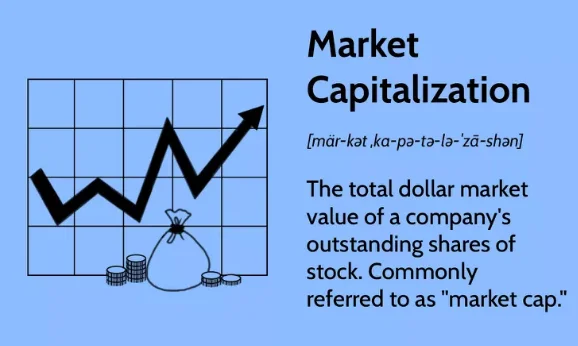
Introduction
We will delve into the idea of market capitalization and examine its significance in the financial world in this extensive tutorial. Market capitalization is a crucial indicator that analysts and investors use to determine the size and worth of a firm. We may make wise investment selections and acquire a competitive edge in the financial markets by comprehending the complexities of market capitalization.
Learning about Market Capitalization
Market capitalization, also known as market cap, is a metric used to determine how much a firm is worth overall on the stock market. It is determined by dividing the current stock price of the company by the total number of outstanding shares. Market capitalization gives an overview of a company’s value and enables investors to evaluate it in relation to competing firms.
How Important Market Capitalization Is
Market capitalisation is important for a number of financial research and investing processes. Here are some main arguments in favour of market cap as a crucial indicator:
1.Dimension and size
The market capitalisation of a corporation can be used to estimate its size and scope. It offers a rapid evaluation of a company’s large-cap, mid-cap, or small-cap stock status. This categorization aids investors in assessing the rewards and risks of a particular investment in a company.
2.Investment Techniques
A common criterion for investment strategies is market capitalization. Different investment strategies, like growth investing or value investing, could concentrate on businesses with a range of market caps. Investors can tailor their investment strategy by studying the market capitalization of a company.
3.Market Indices
The composition of market indices is largely influenced by market capitalisation. Companies are included in well-known indices like the S&P 500 and Dow Jones Industrial Average according to their market capitalization. Since these indices are more significantly impacted by companies with greater market capitalisation, they serve as crucial benchmarks for investors and investment managers.
Market Capitalization Subtypes
Large-cap, mid-cap, and small-cap are the three primary divisions of market capitalisation. Let’s look more closely at each category:
1.Large Cap
Market capitalisation for large-cap corporations is typically greater than 1000 Crore. These businesses are frequently well-established, financially secure, and well-known. Apple, Microsoft, and Amazon are a few examples of large-cap firms. Large-cap stocks are typically seen as less risky investments since they frequently have established markets and a history of reliable performance.
2.Mid Cap
Market capitalisation for mid-cap corporations ranges from 200 crores to 1000 Crore.These businesses are growing and have the potential to develop significantly. Mid-cap stock investing provides a balance between risk and possible gain. Shopify, Square, and Zoom Video Communications are some examples of well-known mid-cap enterprises.
3.Smalll-Cap
Market capitalisation for small-cap firms is less than 200 crores . These businesses, which are frequently at the beginning stages of expansion, might present excellent investment prospects. Small-cap stock investing, however, can be riskier and more volatile. Lemonade, Zscaler, and Farfetch are a few examples of small-cap enterprises.
Market capitalization influences
The market capitalization of a corporation can be impacted by numerous variables. These aspects must be taken into account while assessing investment prospects. The following are important things to bear in mind:
- Financial Results: A company’s market capitalization can be strongly impacted by its financial performance, including revenue growth, profitability, and cash flow. Strong financial performance frequently draw investors, increasing market capitalization.
- Market and Industry Trends: Market capitalisation can be influenced by industry and market dynamics. Market valuations for businesses involved in fast-growing industries or cutting-edge technology developments are generally higher.
- Investor attitude: Market capitalisation can be significantly impacted by investor emotion and market perception. A company’s market cap may increase due to favourable news, new products, or business alliances, while it may decrease due to unfavourable developments or unfavourable investor sentiment.
- Market Position and Competition: Market capitalization can be impacted by industry competition as well as a company’s position in the market in comparison to its competitors. Companies that rule their respective marketplaces or upend entire sectors frequently fetch higher valuations.
Conclusion
A crucial indicator that sheds light on a company’s worth and size is market capitalization. Investors can make wise investing decisions if they comprehend the idea of market capitalization and its importance. If you’re thinking about large-, mid-, or small-cap companies, understanding market size can help you weigh the rewards and dangers. To successfully negotiate the volatile financial markets, stay aware of the elements determining market capitalization.
FOLLOW OUR WEBSITE: https://learningsharks.in/
FOLLOW OUR PAGE:https://www.instagram.com/learningsharks/
